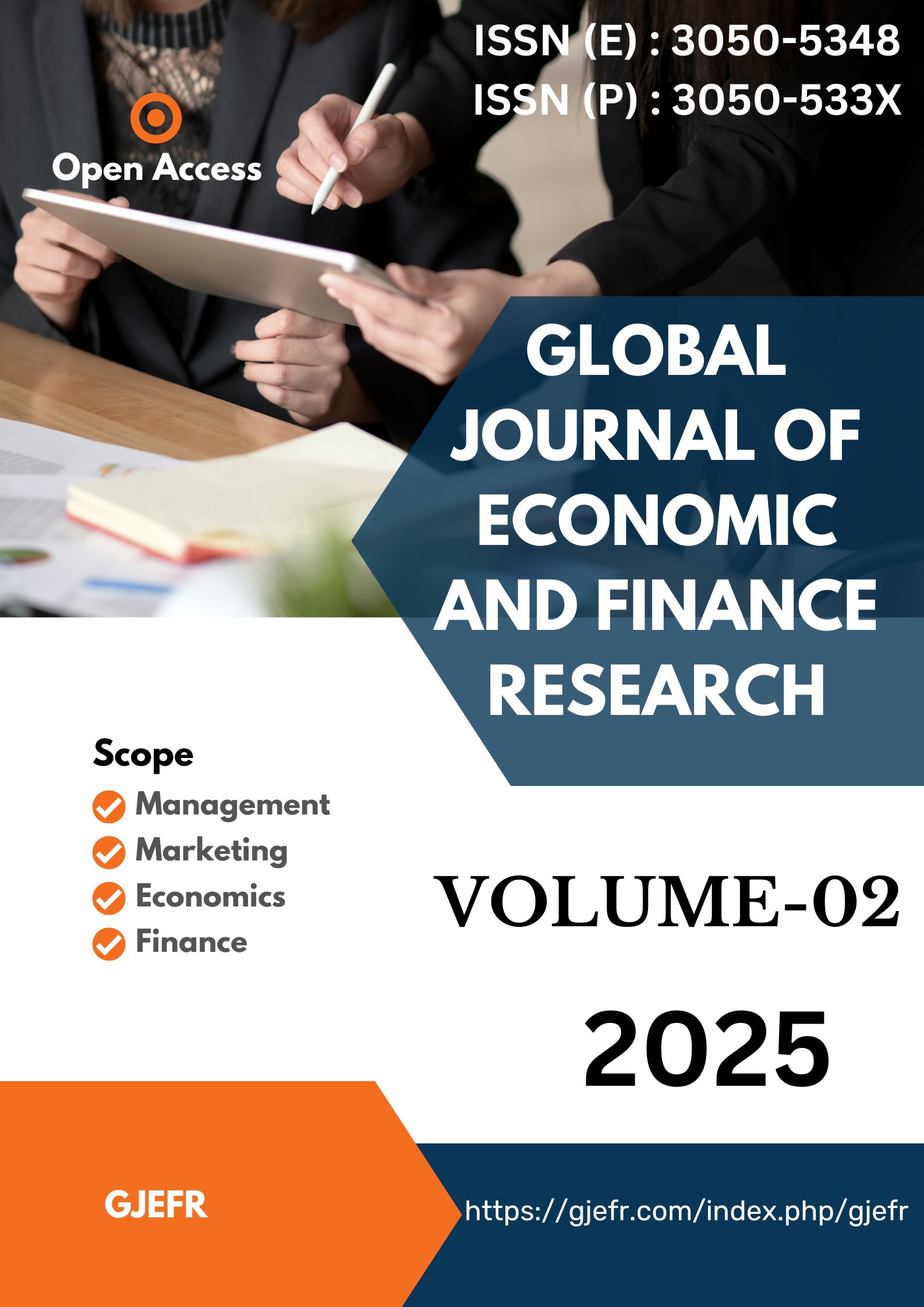Corporate Risk Management Strategies and Market Value of Quoted Manufacturing Firms in Nigeria
Keywords:
Corporate risk management, quoted companies, hedging instruments, market value, hedging theoryAbstract
This study investigates the impact of corporate risk management strategies on quoted companies in Nigeria, focusing on hedging instruments such as forward contracts, futures contracts, options contracts, and swap contracts. The research aims to analyze how these tools influence a company's market value, contributing to our understanding of their role in shaping financial stability and market perception. Grounded in established hedging theory, the study utilizes a robust data analysis methodology, including fixed effects, random effects, Hausman test, and ordinary least squares (OLS) estimation. Various statistical tests, such as T-statistic, F-test, Durbin Watson test, and corrected R-square, assess variable significance and overall regression validity. The analysis reveals a noteworthy negative correlation between forward contracts and market value, suggesting that an increased reliance on forward contracts is associated with a decrease in market valuation, prompting questions about their efficacy in enhancing market value. In contrast, futures contracts show no significant relationship with market value, emphasizing their role in managing price volatility and ensuring supply chain stability. Options contracts yield mixed results, indicating their complex nature and the need for comprehensive investigation. Conversely, swap contracts consistently demonstrate a significant positive relationship with market value, highlighting their potential as highly effective risk management tools. Based on the findings, the study recommends that firms adopt diversified hedging strategies, conduct thorough risk assessments, strategically employ options contracts, maximize the use of swap contracts, engage in continuous monitoring and adaptation, implement integrated risk management frameworks, collaborate with experts, and maintain a long-term perspective in their risk management strategies.

